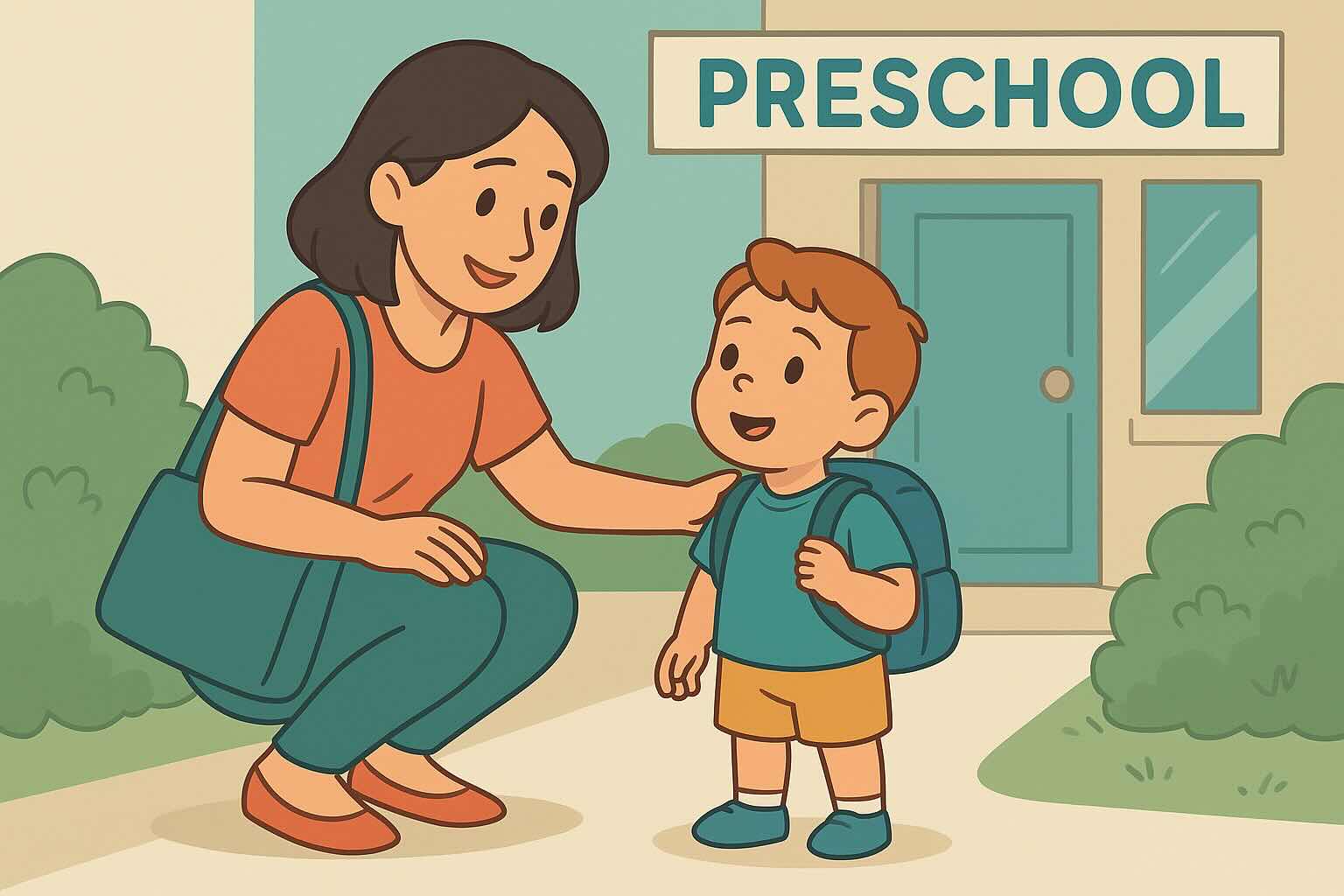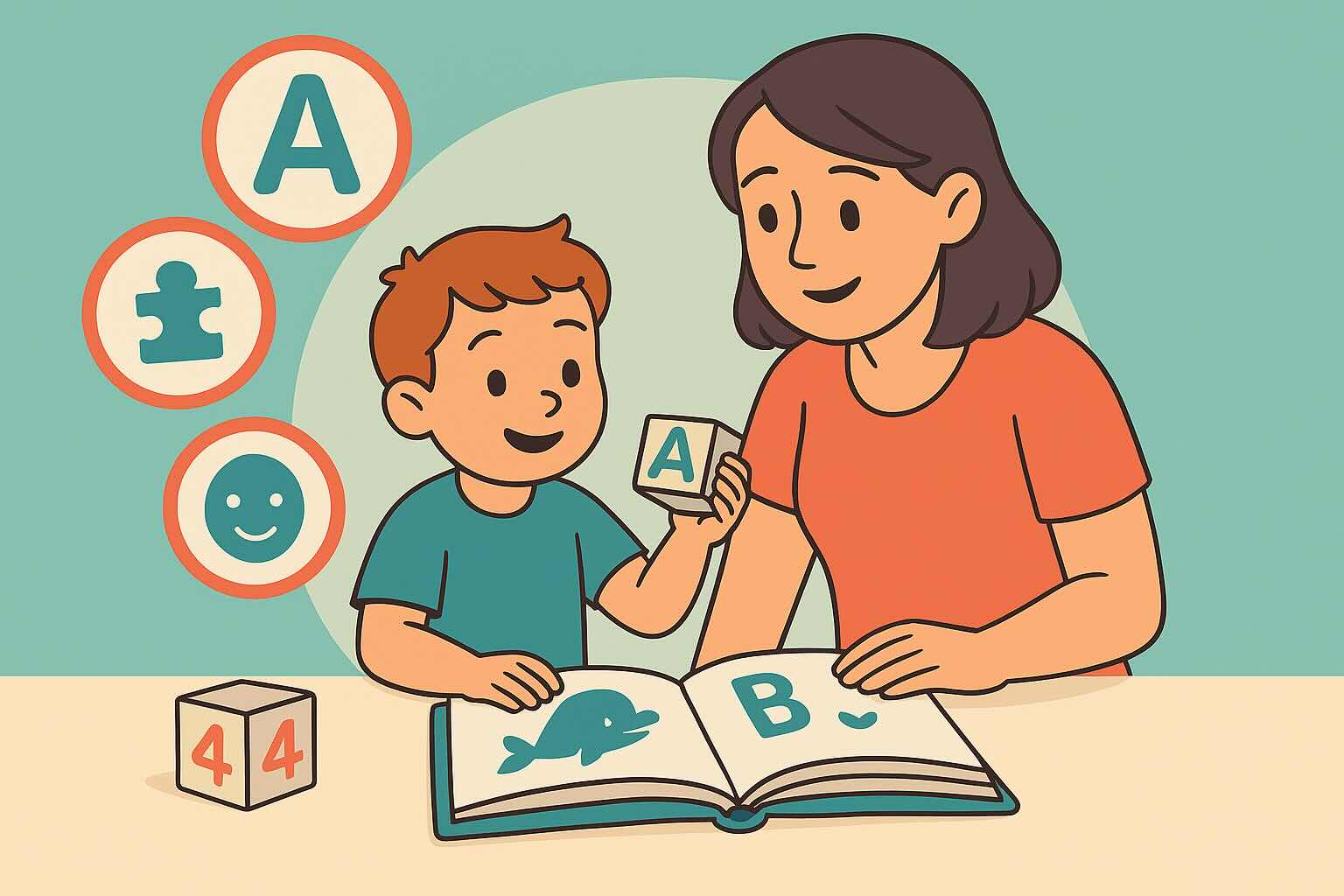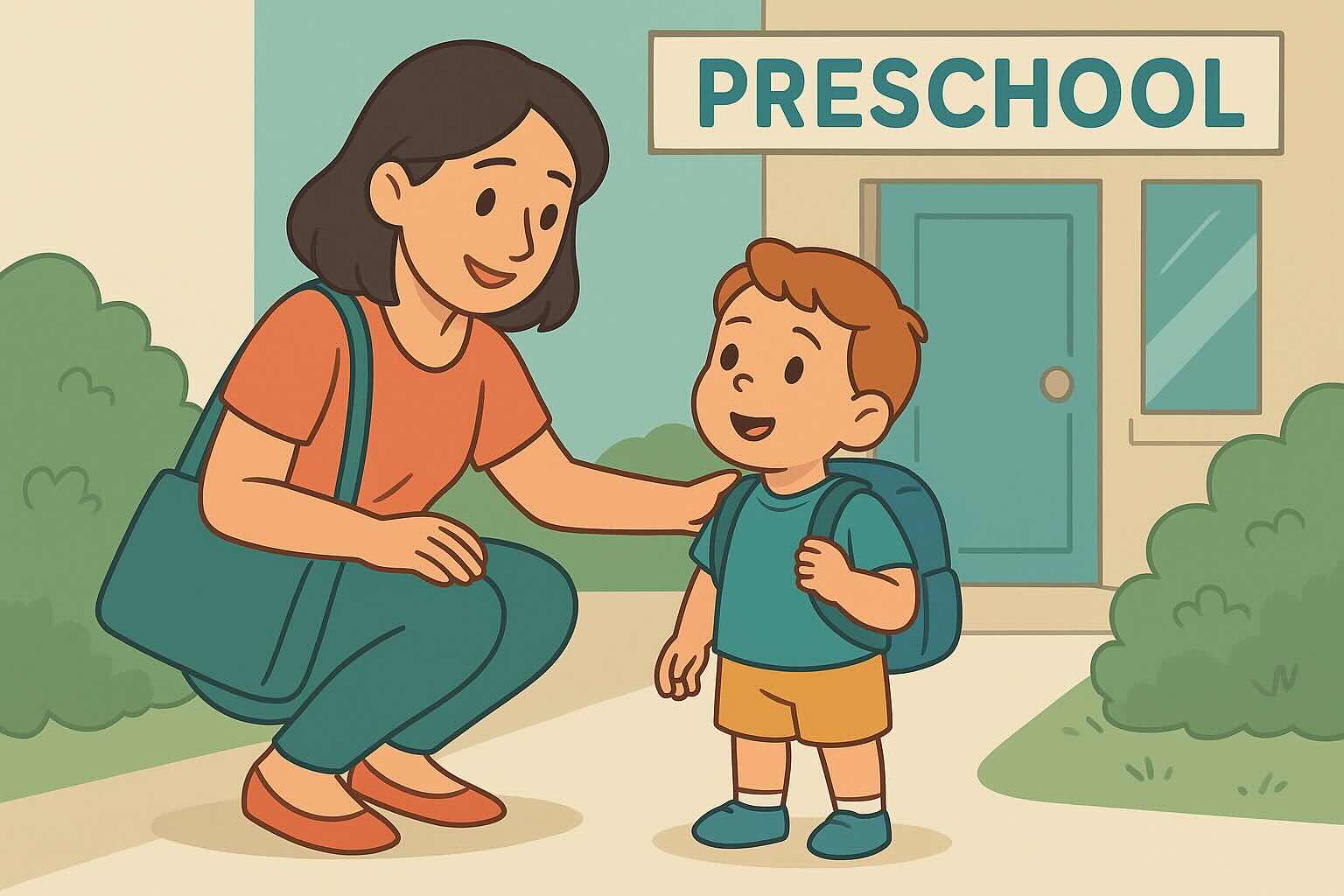Preparing Your 6-Year-Old for School: Readiness Strategies


Preparing your 6-year-old for school represents a unique opportunity to build upon their enhanced cognitive abilities, sophisticated social skills, and growing independence. Research shows that 6-year-olds bring significant advantages to the school experience, including better attention span, more advanced language skills, and greater emotional regulation than younger children, making this an ideal age for embracing academic challenges and complex learning opportunities.
At 6, your child stands at the threshold of formal academic learning with the developmental maturity to handle sophisticated concepts, multi-step projects, and complex social dynamics. However, this enhanced capability also comes with higher expectations and the potential for performance anxiety, making thoughtful preparation essential for long-term academic confidence and success.
This comprehensive guide addresses the unique needs and opportunities of 6-year-olds entering school, whether starting kindergarten, first grade, or transitioning between programs. You'll discover evidence-based strategies to build advanced readiness skills while maintaining the joy and curiosity that fuel lifelong learning.
For comprehensive school transition support, explore our guides on starting kindergarten at 5, preparing for kindergarten, managing routine changes, and building learning confidence.
What You'll Learn in This Guide
- Advanced Readiness Assessment - Evaluating sophisticated academic, social, and emotional capabilities
- Academic Excellence Without Pressure - Building advanced skills while maintaining learning joy
- Sophisticated Social-Emotional Development - Preparing for complex peer relationships and group dynamics
- Independence and Leadership Skills - Fostering self-direction and positive influence on others
- Managing Academic Expectations - Balancing challenge with developmental appropriateness
- Advanced Preparation Timeline - Structured approach for maximizing readiness and confidence
- Partnership for Gifted or Advanced Learners - Advocating for appropriate educational placement and support
Estimated reading time: 13 minutes
Understanding Your 6-Year-Old's Enhanced Capabilities
The Developmental Advantages of Six-Year-Olds
6-year-olds bring remarkable developmental advantages to the school experience that younger children simply don't possess. Understanding these capabilities helps you prepare appropriately while maintaining realistic expectations for continued growth areas.
Cognitive advances that support advanced learning:
- Abstract thinking development allows understanding of complex concepts like time, money, and symbolic representation
- Enhanced working memory supports retention of multi-step instructions and complex problem-solving processes
- Improved attention and focus enables sustained engagement with challenging academic tasks for 30-45 minutes
- Metacognitive awareness helps them understand their own learning processes and identify when they need help
- Logical reasoning skills support mathematical thinking, scientific inquiry, and cause-and-effect understanding
Social-emotional sophistication:
- Advanced empathy allows understanding of others' perspectives and complex emotional situations
- Sophisticated communication enables articulation of complex thoughts, feelings, and ideas
- Leadership potential emerges through ability to organize play, solve group problems, and influence peers positively
- Moral reasoning development supports understanding of fairness, rules, and ethical decision-making
- Identity formation includes academic self-concept and awareness of personal strengths and challenges
Individual Differences in Advanced Development
Early academic achievers may demonstrate reading, writing, or mathematical abilities well beyond typical expectations but still need support for social-emotional development.
Balanced developers show strong growth across all domains and typically adapt well to grade-level expectations with appropriate challenge and support.
Socially gifted children may excel in leadership and peer relationships while needing support for academic confidence or specific learning areas.
Creative thinkers may show exceptional artistic, musical, or innovative capabilities that require nurturing alongside traditional academic preparation.
Highly sensitive advanced learners may have sophisticated intellectual abilities paired with intense emotional responses that need careful support.
Recognizing your child's unique profile helps you advocate for appropriate educational placement and support their individual strengths while addressing growth areas.
Advanced Academic Readiness Assessment
Sophisticated Literacy Skills
6-year-olds can develop advanced literacy abilities that go far beyond basic letter recognition and phonics awareness. Assess your child's current abilities to understand their readiness for formal reading and writing instruction.
Advanced pre-reading and reading skills:
- Independent reading of simple books with comprehension and enjoyment
- Understanding of story structure including beginning, middle, end, and character development
- Phonics mastery including blending sounds, recognizing word families, and decoding unfamiliar words
- Sight word recognition of 50-100 common words for fluent reading
- Reading stamina allowing engagement with books for 15-20 minutes independently
Sophisticated writing abilities:
- Writing complete sentences with proper capitalization and punctuation
- Spelling phonetically with increasing accuracy for common words
- Creative writing that includes characters, settings, and basic plot development
- Handwriting that is legible and appropriately sized for writing tasks
- Understanding of writing purposes: stories, lists, letters, and informational text
Advanced language and communication:
- Vocabulary that includes abstract concepts and descriptive language
- Ability to follow and give complex multi-step oral directions
- Participation in sophisticated discussions with relevant contributions and questions
- Understanding of humor, wordplay, and beginning appreciation for literature
- Effective storytelling with engaging details and logical sequence
Mathematical Thinking and Problem-Solving
6-year-olds can engage with mathematical concepts that require logical reasoning, pattern recognition, and abstract thinking beyond simple counting and basic operations.
Advanced numeracy skills:
- Counting beyond 100 with understanding of place value concepts
- Fluent addition and subtraction facts within 10 with beginning understanding of larger numbers
- Understanding of mathematical relationships: greater than/less than, equal to, part/whole concepts
- Pattern recognition and creation with numbers, shapes, and abstract concepts
- Beginning multiplication and division concepts through concrete manipulation and real-world problems
Problem-solving and logical thinking:
- Multi-step word problems that require planning and strategy selection
- Measurement concepts including length, weight, time, and money in practical contexts
- Geometric understanding of shapes, spatial relationships, and beginning fraction concepts
- Data collection and interpretation through graphs, charts, and simple statistical thinking
- Mathematical reasoning that includes explaining thinking and justifying solutions
Assessment strategies for advanced mathematical thinking:
- Observe problem-solving processes rather than focusing only on correct answers
- Present open-ended challenges that allow for multiple solution strategies
- Assess understanding through real-world application rather than abstract worksheets
- Look for mathematical curiosity and willingness to tackle challenging problems
- Document growth over time rather than comparing to arbitrary grade-level expectations
Academic Excellence Without Pressure
Building Advanced Skills Through Engaging Exploration
6-year-olds thrive when academic challenges are presented through engaging, meaningful activities that connect to their interests and real-world experiences. Avoid drill-based or pressure-filled approaches that can diminish intrinsic motivation.
Advanced literacy development activities:
- Author studies where your child reads multiple books by the same writer and discusses themes and styles
- Creative writing projects that connect to your child's interests: stories about favorite animals, family adventures, or invented worlds
- Research projects using age-appropriate resources to learn about topics of fascination
- Book clubs or reading partnerships with peers or family members for discussion and social engagement
- Drama and storytelling activities that bring literature to life through performance and creativity
Sophisticated mathematical exploration:
- Real-world problem-solving: cooking projects that involve measurement, fraction concepts, and following complex directions
- Building and engineering challenges that require planning, measurement, and geometric thinking
- Money concepts through play stores, budgeting for special purchases, or saving toward goals
- Time and calendar projects that build understanding of duration, sequence, and planning
- Pattern and logic games that challenge reasoning skills while maintaining playful engagement
Science and discovery learning:
- Hands-on experiments that encourage hypothesis formation, observation, and conclusion drawing
- Nature studies that combine observation skills, classification, and environmental awareness
- Simple machines and building projects that explore physics concepts through concrete manipulation
- Weather tracking and seasonal observations that build scientific thinking and data collection skills
- Life science studies through gardening, pet care, or observing local wildlife
Maintaining Learning Joy and Intrinsic Motivation
Approaches that preserve natural curiosity:
- Follow your child's interests and build academic skills through their passions
- Celebrate effort, creativity, and problem-solving rather than focusing on correct answers or speed
- Provide choices in learning activities and allow your child to direct some of their educational exploration
- Connect academic learning to real-world applications that demonstrate relevance and importance
- Model your own love of learning and curiosity about the world
Avoiding academic pressure and burnout:
- Balance structured learning with free play, creativity, and physical activity
- Avoid comparing your child's academic progress to peers or using achievement as a measure of worth
- Focus on understanding and mastery rather than rushing through curriculum or covering material quickly
- Allow mistakes and struggles as natural parts of the learning process rather than problems to be avoided
- Trust your child's developmental timeline and individual learning style rather than pushing for external benchmarks
Sophisticated Social-Emotional Development
Advanced Peer Relationships and Social Dynamics
6-year-olds are capable of complex peer relationships that go beyond simple parallel play or basic cooperation. They can navigate sophisticated social dynamics while developing leadership skills and genuine friendships.
Advanced social skills for school success:
- Leadership abilities including organizing group activities, mediating conflicts, and inspiring cooperation
- Complex conflict resolution that involves perspective-taking, compromise, and creative problem-solving
- Sophisticated empathy that includes understanding others' emotions, motivations, and needs
- Inclusive behavior that welcomes diverse peers and builds community rather than exclusive friendships
- Collaborative skills for group projects including shared decision-making, task division, and mutual support
Navigating complex social situations:
- Understanding of social cues, unspoken rules, and contextual expectations
- Ability to adjust social behavior appropriately for different settings: classroom, playground, family gatherings
- Skills for building and maintaining multiple friendships without creating jealousy or exclusion
- Appropriate assertiveness for standing up for themselves and others while respecting authority
- Resilience when facing social challenges, rejection, or changing friendship dynamics
Building advanced social skills:
- Provide opportunities for group activities that require cooperation, planning, and shared responsibility
- Discuss complex social situations from books, movies, or real-life experiences
- Practice perspective-taking through role-playing and "what if" discussions
- Model inclusive behavior and discuss the importance of kindness and acceptance of differences
- Support your child's developing leadership abilities while teaching humility and service to others
Emotional Regulation and Resilience
6-year-olds can develop sophisticated emotional regulation skills that support academic success and positive peer relationships, but they still need guidance and support for managing intense emotions and challenging situations.
Advanced emotional regulation abilities:
- Recognition of emotional triggers and early warning signs before reaching crisis points
- Multiple coping strategies that can be selected based on situation and available resources
- Ability to express complex emotions with sophisticated vocabulary and appropriate intensity
- Self-calming techniques that work in group settings without disrupting others
- Resilience when facing academic challenges, social conflicts, or personal setbacks
Building emotional sophistication:
- Expand emotional vocabulary beyond basic feeling words to include nuanced emotions
- Practice emotional regulation during naturally occurring challenges rather than artificial scenarios
- Discuss emotional complexity: how people can feel multiple emotions simultaneously
- Model your own emotional regulation and discuss your coping strategies openly
- Connect emotions to academic and social success: how feelings affect learning and relationships
Supporting resilience and growth mindset:
- Teach that intelligence and abilities can grow through effort and practice
- Normalize struggle and mistakes as essential parts of learning and development
- Help your child set appropriate goals and celebrate progress toward achievements
- Build confidence through mastery of appropriately challenging tasks
- Foster independence while providing emotional security and unconditional support
Independence and Leadership Development
Advanced Self-Direction and Academic Responsibility
6-year-olds can take significant responsibility for their learning and daily routines, developing the independence skills that support academic success and personal growth.
Academic independence skills:
- Self-directed learning including choosing appropriate challenge levels and seeking help when needed
- Time management abilities for completing multi-step projects and managing deadlines
- Organizational systems for tracking assignments, materials, and personal belongings
- Quality control including self-assessment of work and revision when necessary
- Academic ownership including setting learning goals and monitoring progress toward achievement
Daily life independence:
- Complete morning and evening routines with minimal adult supervision
- Responsibility for personal care, clothing choices, and health maintenance
- Household contributions that demonstrate capability and community membership
- Money management through allowance, savings goals, and spending decisions
- Planning and preparation for activities, outings, and special events
Building independence gradually:
- Provide age-appropriate choices and allow natural consequences for decisions
- Create systems and routines that support independence while maintaining safety and family expectations
- Celebrate growing capability while maintaining emotional connection and support
- Allow struggles and problem-solving opportunities rather than rescuing from all challenges
- Trust your child's developing judgment while providing guidance and safety parameters
Leadership and Positive Influence
Developing positive leadership qualities:
- Encouraging others and building confidence in peers rather than competing or comparing
- Taking initiative to solve problems and improve situations for the group
- Standing up for fairness and inclusion when witnessing unkindness or exclusion
- Sharing knowledge and skills to help others learn and succeed
- Taking responsibility for mistakes and working to repair harm or solve problems
Leadership opportunities:
- Assign age-appropriate family responsibilities that contribute to household functioning
- Encourage your child to organize play activities or group projects with peers
- Support involvement in community activities that build leadership skills and social awareness
- Model positive leadership and discuss leaders your child admires and why
- Provide opportunities for your child to teach or mentor younger children
Managing Academic Expectations and Performance Anxiety
Balancing Challenge with Developmental Appropriateness
6-year-olds can handle significant academic challenge, but they still need support for emotional regulation, realistic expectations, and maintaining love of learning alongside achievement.
Signs of appropriate academic challenge:
- Engagement and enthusiasm for learning activities most of the time
- Willingness to persist through difficult tasks with appropriate support
- Pride in effort and problem-solving rather than only focusing on correctness
- Curiosity and questions that drive deeper exploration of topics
- Balance between success and struggle that builds confidence and resilience
Red flags for excessive academic pressure:
- Perfectionism that prevents trying new activities or leads to emotional meltdowns
- Loss of curiosity or enthusiasm for learning activities
- Physical symptoms of stress like headaches, stomachaches, or sleep disruption
- Preoccupation with grades, achievement, or comparison to others
- Resistance to academic activities that were previously enjoyable
Creating appropriate academic environment:
- Set high expectations while maintaining patience for developmental growth
- Focus on individual progress rather than comparing to peers or arbitrary standards
- Celebrate effort, creativity, and problem-solving alongside achievement
- Provide support and encouragement during challenging tasks without doing the work for your child
- Trust your child's individual timeline for mastering complex skills
Building Academic Confidence and Resilience
Approaches that build lasting academic confidence:
- Growth mindset language that emphasizes learning and improvement over fixed abilities
- Connection between effort and results rather than attributing success to natural talent
- Mistakes and struggles framed as valuable learning opportunities rather than failures
- Individual strengths celebrated while working on areas that need development
- Long-term learning goals that build excitement for continued growth and discovery
Supporting children who struggle with perfectionism:
- Model making mistakes and learning from them without excessive self-criticism
- Discuss famous people who failed before succeeding and emphasize the learning process
- Provide opportunities for creative expression where there are no "right" answers
- Focus on problem-solving processes rather than only celebrating correct outcomes
- Help your child set realistic goals and celebrate progress toward achievements
8-Week Advanced School Preparation Timeline
Weeks 8-7: Comprehensive Assessment and Goal Setting
Advanced readiness evaluation:
- Complete thorough assessment of your child's academic, social, emotional, and independence capabilities
- Identify areas of strength that can be built upon and areas needing development
- Research school options and programs that match your child's learning style and needs
- Set realistic goals for preparation that honor your child's individual development
Begin advanced skill building:
- Incorporate challenging academic activities that build on your child's interests and capabilities
- Increase opportunities for leadership and complex social interaction
- Begin building independence and responsibility in daily routines and academic tasks
- Address any areas of concern with appropriate professionals or resources
Weeks 6-5: Intensive Academic and Social Development
Academic skill enhancement:
- Focus on advanced literacy skills through reading challenging books and creative writing projects
- Build mathematical thinking through real-world problem-solving and complex challenges
- Develop research and inquiry skills through projects based on your child's interests
- Practice sustained attention and academic stamina through increasingly demanding tasks
Social-emotional skill building:
- Provide regular opportunities for leadership and group cooperation
- Teach advanced conflict resolution and emotional regulation strategies
- Build empathy and perspective-taking through diverse experiences and discussions
- Practice academic collaboration and peer learning opportunities
Weeks 4-3: Integration and School-Specific Preparation
Skill integration activities:
- Combine academic, social, and independence skills in complex projects and challenges
- Practice school-like routines including sustained work periods and transitions
- Visit potential schools and meet teachers to understand specific expectations
- Address any anxiety or concerns about school while building excitement and confidence
Environment and community preparation:
- Connect with families from your child's future school to build social connections
- Participate in school orientation activities and community events
- Practice transportation routines and become familiar with school environment
- Complete logistical preparations including supplies, paperwork, and scheduling
Weeks 2-1: Final Preparation and Confidence Building
Readiness celebration and final preparation:
- Celebrate your child's growth and preparation rather than focusing on remaining challenges
- Complete final practical preparations with your child's participation and excitement
- Plan meaningful traditions or celebrations to honor this important milestone
- Focus on positive anticipation while acknowledging that some nervousness is normal
Support system activation:
- Establish communication with teachers and school staff about your child's needs and strengths
- Connect with other families for mutual support during transition
- Prepare strategies for supporting your child's adjustment and continued success
- Trust your child's capabilities while remaining available for support and guidance
Ongoing: Supporting Continued Excellence and Growth
Sustained success strategies:
- Maintain high expectations balanced with patience for continued development
- Support your child's academic challenges while preserving love of learning
- Foster leadership opportunities and positive peer relationships
- Monitor for signs of stress or academic pressure and adjust accordingly
- Celebrate your child's unique journey and continued growth as an advanced learner
Key Takeaways: Preparing Your 6-Year-Old for School Success
- ✅ 6-year-olds bring enhanced capabilities that support advanced academic and social learning
- ✅ Individual differences remain significant - preparation should match your child's unique profile
- ✅ Academic excellence requires balance between challenge and developmental appropriateness
- ✅ Social-emotional skills become more sophisticated and support complex peer relationships
- ✅ Independence and leadership can be fostered through appropriate opportunities and expectations
- ✅ Learning joy must be preserved alongside academic achievement and high expectations
- ✅ Performance anxiety requires monitoring and intervention when it interferes with learning
- ✅ Advanced learners need appropriate placement and educational programming for continued growth
- ✅ Family partnership with schools supports optimal educational experiences and outcomes
- ✅ Individual timeline remains important despite enhanced capabilities and higher expectations
Remember: Preparing your 6-year-old for school success involves honoring their enhanced capabilities while maintaining the emotional support, creative exploration, and individual pacing that foster lifelong love of learning. Trust their remarkable development while providing the challenge, guidance, and encouragement they need to thrive academically and socially.
This article is based on child development research and educational psychology. Individual experiences vary based on child temperament, family circumstances, and educational environment. Consult with educators, school counselors, or child development specialists if you have concerns about your child's school readiness or need guidance about appropriate educational placement.
24/7 AI Parenting Assistant
Get instant, personalized advice with expert-curated parenting knowledge. Chat with your AI coach anytime, anywhere.

Self-Care for Parents
Daily affirmations, guided meditations, and journaling tools to help you stay centered and emotionally balanced.

Routine Transition Planner
4-week method for implementing routine changes successfully with gradual strategies and resistance management techniques.
Frequently Asked Questions
Need personalized support?
RootWise's AI coach can provide tailored strategies for your specific situation, available 24/7 when you need it most.
Learn More About AI Coaching →



